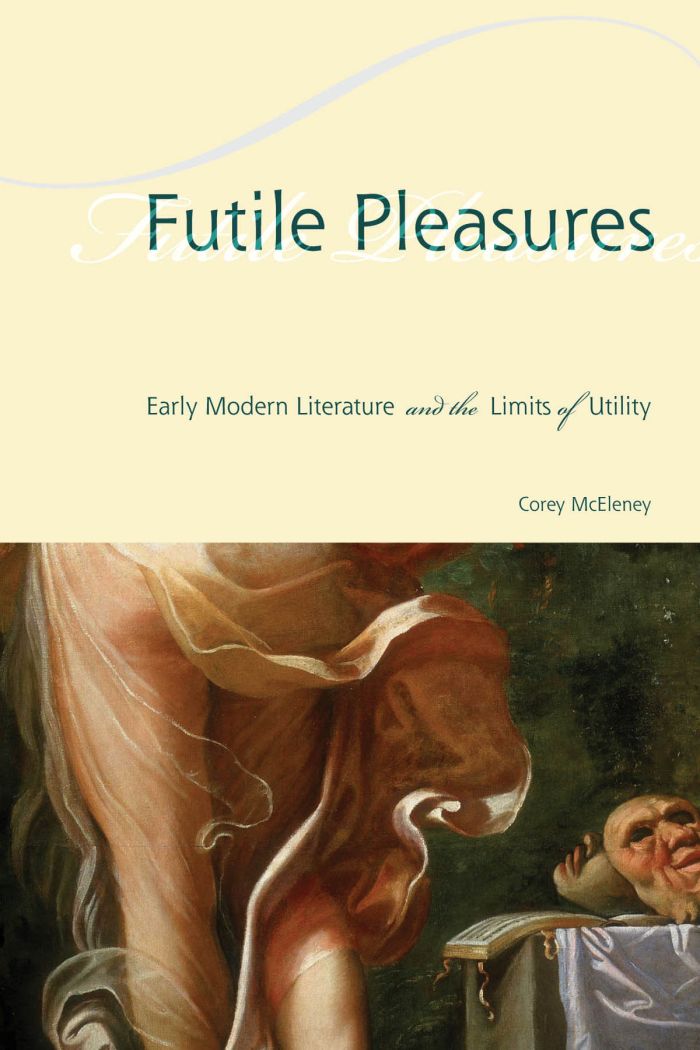Futile Pleasures
Early Modern Literature and the Limits of Utility

This book can be opened with

Honorable Mention, 2018 MLA Prize for a First Book
Against the defensive backdrop of countless apologetic justifications for the value of literature and the humanities, Futile Pleasures reframes the current conversation by returning to the literary culture of early modern England, a culture whose defensive posture toward literature rivals and shapes our own.
During the Renaissance, poets justified the value of their work on the basis of the notion that the purpose of poetry is to please and instruct, that it must be both delightful and useful. At the same time, many of these writers faced the possibility that the pleasures of literature may be in conflict with the demand to be useful and valuable. Analyzing the rhetoric of pleasure and the pleasure of rhetoric in texts by William Shakespeare, Roger Ascham, Thomas Nashe, Edmund Spenser, and John Milton, McEleney explores the ambivalence these writers display toward literature’s potential for useless, frivolous vanity.
Tracing that ambivalence forward to the modern era, this book also shows how contemporary critics have recapitulated Renaissance humanist ideals about aesthetic value. Against a longstanding tradition that defensively advocates for the redemptive utility of literature, Futile Pleasures both theorizes and performs the queer pleasures of futility. Without ever losing sight of the costs of those pleasures, McEleney argues that playing with futility may be one way of moving beyond the impasses that modern humanists, like their early modern counterparts, have always faced.
“If the humanist defense of literature calls attention to the work of art, identifying aesthetic practice with the production of social value, then Corey McEleney’s bold new book asks an indispensable question: Can art escape such coercive labor without making it escape the value it then labors to affirm? Identifying futility as the queer component in literary production, Futile Pleasures reimagines queer theory in relation to early modern thought. The result is a major work of criticism that contributes not only pleasurably, but also—we must admit it—valuably to debates in both of those fields.”——Lee Edelman, Tufts University
McEleney's book is refreshing, delightful, and earnestly concerned with the values we assign to literature and to scholarship. Just as his book cleverly and successfully upends and interrogates the binary opposition between pleasure and profit, so too, his hopeful conclusion dissects the binary between literature and criticism itself. If only we could all write and interpret with as much pleasure, art, and insight as McEleney does.—Journal of British Studies
Futile Pleasures provides a timely reminder that, in the face of ceaseless debates about the role of the humanities, we might recall the history of such a demand for usefulness and, in doing so, uncover the radical possibilities available in pleasure.—Sixteenth Century Journal

